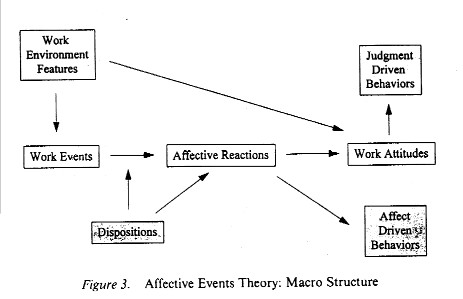
In Fig. 3, are affective reactions a moderator or a mediator?
They are mediators. They explain how work events influence attitudes and behaviors. Notice that affective reactions intervene between work events and attitudes, essentially forming a causal chain (if we are willing to make an assumption of causality). The model shows us that the reason things that happen at work influence job attitudes and behaviors is because they create emotional responses. Thus, emotional responses are a more proximal (i.e., closer in time) predictor of attitudes and behavior than work events.
